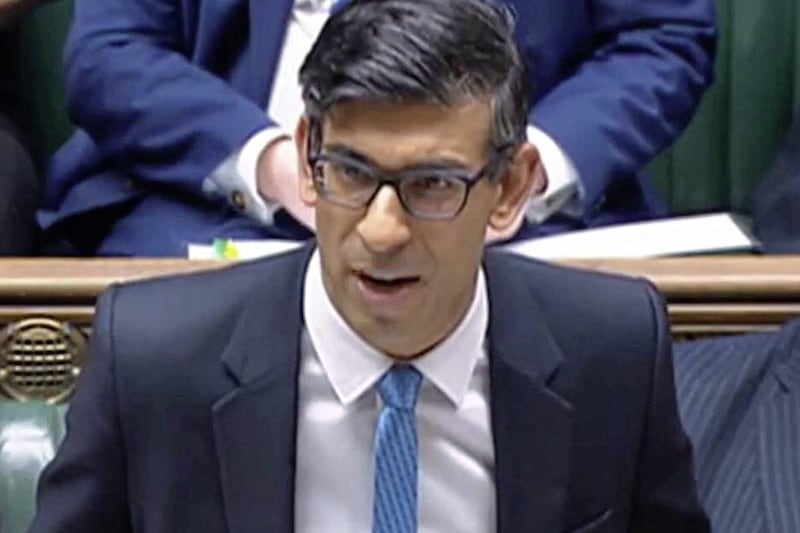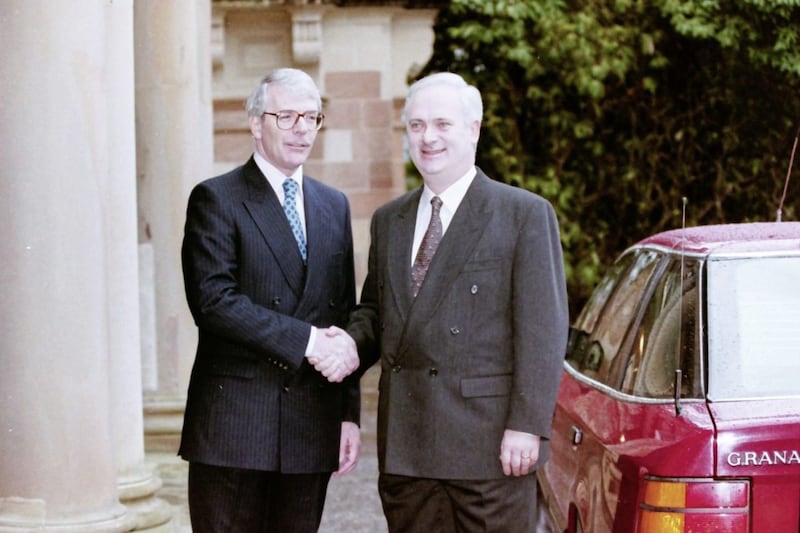John Major was concerned loyalists would walk away from the ceasefire in 1996 if they thought the British government was giving into Sinn Fein demands.
Mr Major made the comments in a conversation with then-Taoiseach John Bruton, when Irish officials were facing difficulties in getting the British to move away from a plan to enforce a three-month wait time before allowing Sinn Fein to enter the peace talks.
Mr Bruton said during a phone conversation that the Irish and British position on Sinn Fein’s entry into talks was “bleak” as they are so far apart.
The comments were made in a call between the pair in October 1996.
In a record of the meeting, Mr Bruton told Mr Major that that Irish officials had held a meeting with Gerry Adams the day before.
He said that following the conversation with Mr Adams, he was convinced that a ceasefire and peace was “within grasp”, and warned the then-prime minister that if they miss the chance, that it will “not be easy” to get back to it.
The issues of enforcing a three-month waiting period against Sinn Fein was raised in the conversation, with Mr Bruton saying that SDLP deputy leader Seamus Mallon stating that the timeframe could be “very injurious, electorally”, to his party.
Mr Mallon claimed that Sinn Fein would garner “enormous sympathy” among nationalists in Northern Ireland if it was made to wait a period of time from the outset of a ceasefire.
Mr Bruton told Mr Major: “Looking at the position, then, it looks rather bleak, with the positions of the different sides far apart as regards Sinn Fein entry into the talks.”
Mr Major said the British services had reported that there was a lot of evidence the IRA was ready to place more bombs.
He said there were doubts as to whether Mr Adams was serious or whether he had the capacity to “make his wishes stick” regarding the ceasefire.
Mr Burton warned that laying down any “purgatory period” would lose the opportunity of a ceasefire.
Mr Major replied: “But what reasonable basis exists for believing a single word they say?
“The last time, when they were talking about peace, they were preparing for war.
“Within two weeks of declaring the last ceasefire, they were hiring the garage in which we found tons of explosives.”
The then-Taoiseach moved to reassure Mr Major that he had “hard evidence” to believe Mr Adams would deliver on a ceasefire.
“It may, of course, be tactical in intention but the longer it goes on, the harder it would be for them to go back to violence,” Mr Bruton said.
Mr Major replied: “I am disinclined to believe anything from them. A timeframe is not really a new hurdle.
“It is simply a translation into reality of what has happened since we referred to “unequivocal” last February.
“I am not sure that we would not, by such action, also lose the loyalist ceasefire, because they would see my Government meeting Sinn Fein demands for entry to the talks without any evidence of a ceasefire being credible.”He added: “What will be said and believed in the House of Commons, if we let Sinn Fein in without such a test period, is that every time Sinn Fein get irritable, they let off a few bombs and that the Government then rush to accommodate them.
“It will be said that this is a craven attitude on the part of the British Government, they have rushed them straight into talks. And the Ulster Unionists will say: thank you very much, no thanks.”
In July 1997, the IRA renewed its ceasefire following talks with British officials.
The material can be viewed in the National Archives in file 2022/81/26.







